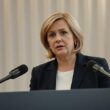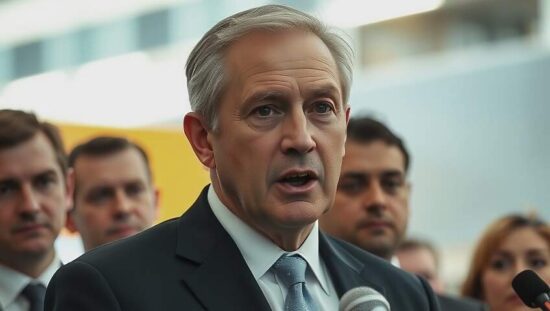The newly appointed Chairman of the Parliamentary Control Committee, Marc Henrichmann (CDU), is calling for a strengthening of German intelligence agencies and a heightened sense of security within the population. Speaking to “Welt” he expressed concern that the perception of threats, particularly those originating from Russia, are frequently underestimated or entirely overlooked. Instead, he observed a tendency to attribute misinformation to government disinformation campaigns or political actors. He emphasized the need to increase public awareness of actual events unfolding.
Henrichmann advocated for expanded powers for intelligence services, suggesting a move towards a unified European standard as a starting point. He acknowledged Europe’s robust data protection culture but questioned whether its full extent should be applied to intelligence work, especially during times of crisis. He stressed the need to re-examine current data protection practices.
He also highlighted structural obstacles hindering collaboration with partner intelligence agencies. He argued that the requirement to review information from foreign services for personal data and redact it as needed diverts crucial personnel needed for essential operations.
Regarding the Military Security Service (MAD), Henrichmann underscored the need for more flexible operational rules. He noted that when German soldiers are stationed abroad, for example in Lithuania, investigations into suspected espionage occurring outside military bases shouldn’t be hampered by protracted deliberations in Berlin.
Addressing the political complexities surrounding data protection, Henrichmann criticized the tendency towards narrow, case-by-case arguments when addressing broader security policy issues. He acknowledged the tragedy of individual data breaches but insisted that such instances shouldn’t dictate overarching security and federal policy. He asserted the need to maintain operational capacity while upholding the rule of law.
On cyber defense, Henrichmann called for a fundamental shift in collaboration between the state and the private sector. He advocated for mandatory reporting channels, clear legal frameworks and a reciprocal feedback system, ensuring those who report incidents receive actionable responses. He also championed embracing artificial intelligence, arguing that those who utilize AI in attacks should be able to defend against them, within both cyber contexts and counter-terrorism efforts.
Henrichmann defended the rejection of Heidi Reichinnek of the Left party as a member of the Control Committee. He argued against the practice of allowing faction leaders to hold positions within the committee, citing time constraints and concerns about the potential impact of demonstrated sympathies for individuals associated with extremist ideologies on the confidence of former partners.
Regarding the non-selection of his CDU colleague Roderich Kiesewetter, Henrichmann acknowledged the involvement of regional groups in the selection process. He expressed respect for Kiesewetter’s expertise while stating he was unaware of the specific reasons for his non-selection and welcomed the appointment of Alexander Throm, an experienced interior and security policy expert, from Baden-Württemberg.





